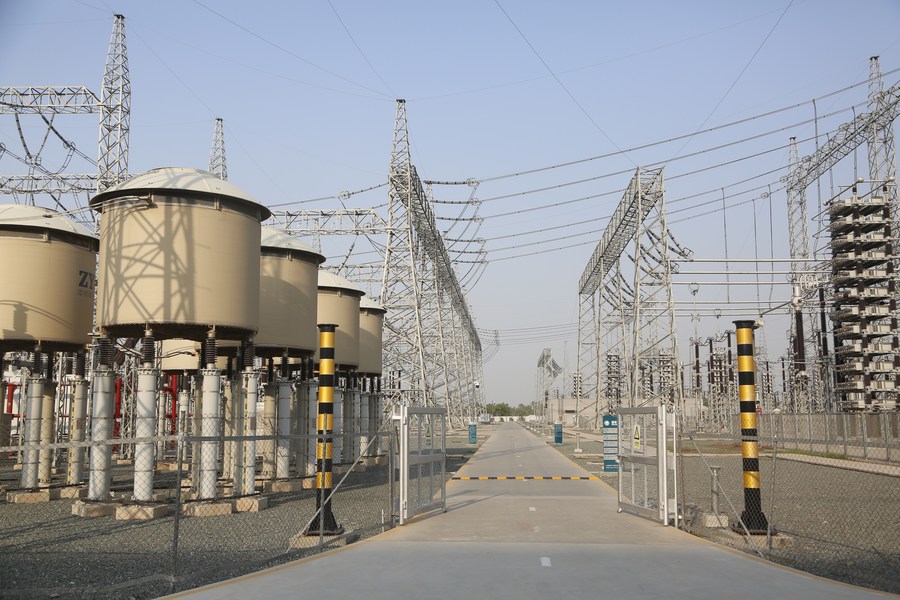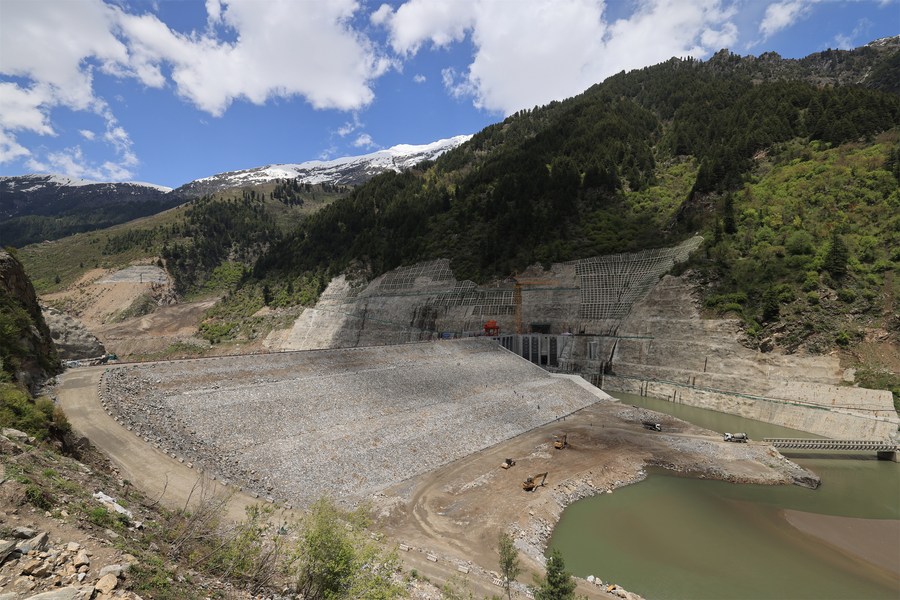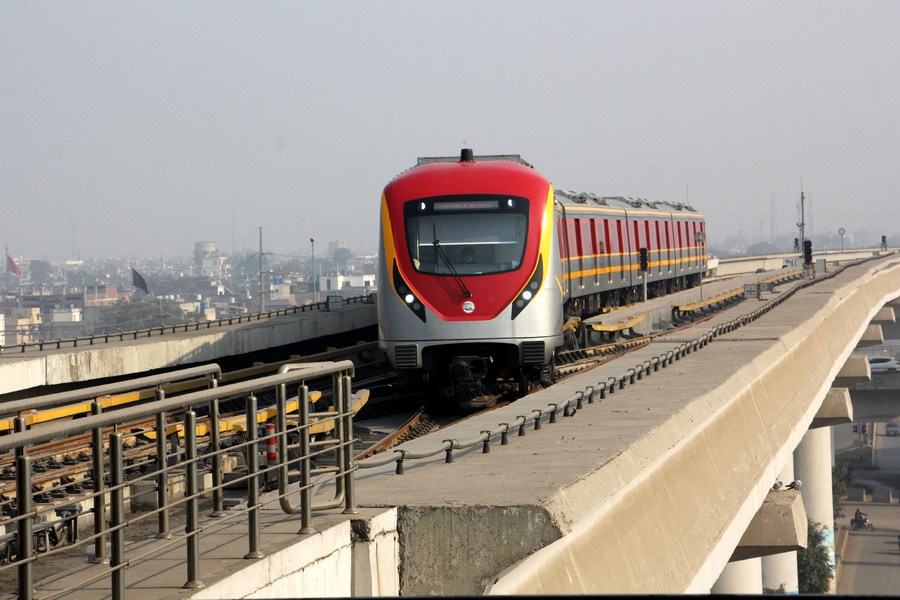High-quality CPEC highlights vitality of BRI, says Pakistani expert

This photo taken on July 3, 2023 shows a view of the ±660kV Matiari-Lahore high-voltage direct current (HVDC) transmission project under the China-Pakistan Economic Corridor (CPEC) on the outskirts of Lahore, Pakistan. (Xinhua/Ahmad Kamal)
CPEC has brought a new model of investment in Pakistan, which boosted economic growth, generated wealth and brought employment opportunities, said Zamir Ahmed Awan, founding chair of an Islamabad-based think tank.
ISLAMABAD, July 30 (Xinhua) -- The China-Pakistan Economic Corridor (CPEC) has brought high-quality development and contributed to a human community with a shared future through win-win economic cooperation between Pakistan and China, highlighting the vitality of China-proposed Belt and Road Initiative (BRI), a Pakistani expert said.
The increased economic cooperation between China and Pakistan fostered stronger trade ties, investment opportunities, and infrastructural development that helped the people of Pakistan, Zamir Ahmed Awan, founding chair of Islamabad-based think tank, the Global Silk Route Research Alliance, told Xinhua in a recent interview.
Launched in 2013, CPEC, the flagship project of the BRI, is a corridor linking the Gwadar port in southwestern Pakistan with Kashgar in northwest China's Xinjiang Uygur Autonomous Region, which highlights energy, transport and industrial cooperation.
By investing in infrastructure and various sectors, CPEC stimulated economic activity in Pakistan, creating thousands of jobs and improving the socio-economic life of locals, Awan added.

Photo taken on May 15, 2023 shows the dam of Suki Kinari Hydropower project under the China-Pakistan Economic Corridor (CPEC) in Mansehra district, Khyber Pakhtunkhwa province, Pakistan. (CGGC/Handout via Xinhua)
With the launch of the BRI and Pakistan joining CPEC, a great change happened to Pakistan's economy with all economic indicators immensely improved, Awan said.
Recalling the acute shortage of electricity and up to 18 hours of load shedding in summer in some of the areas in Pakistan before CPEC was started, Awan said, CPEC invested heavily in the electricity sector for power generation and power transmission.
"As a result of the completed power projects, Pakistan has gotten out of load shedding, and almost we are producing sufficient electricity to meet the demand of Pakistan currently," he added.
The expert said that CPEC also enhanced business activities in Pakistan by building a network of high-quality roads across the country.
"Pakistan from its width and length is connected by the motorways and expressways constructed under the CPEC framework," he said.

An Orange Line metro train pulls into the terminal station in Lahore, Pakistan, Dec. 29, 2021. (Photo by Jamil Ahmed/Xinhua)
Talking about the skill enhancement and training of local laborers to become skilled workers, Awan said that the Chinese companies in Pakistan trained the Pakistani human resource through on-job training, and some of the Chinese companies selected some youth and graduates and sent them to China for training and high education.
"So, China has helped Pakistan to produce a human resource to meet the challenges of the 21st century. Not only this, China also provided thousands of scholarships to Pakistani students to study science and technology from China. In this way, China is meeting the requirements of Pakistan's human resource development very effectively," he added.
Awan said that CPEC has brought a new model of investment in Pakistan, which boosted economic growth, generated wealth and brought employment opportunities.
"Power plant is producing electricity, which means that money will be generated through sales, and a large number of jobs will be created. China helped Pakistan develop the port, and this means when the port is operational, it is generating revenue for the government of Pakistan," he said.


